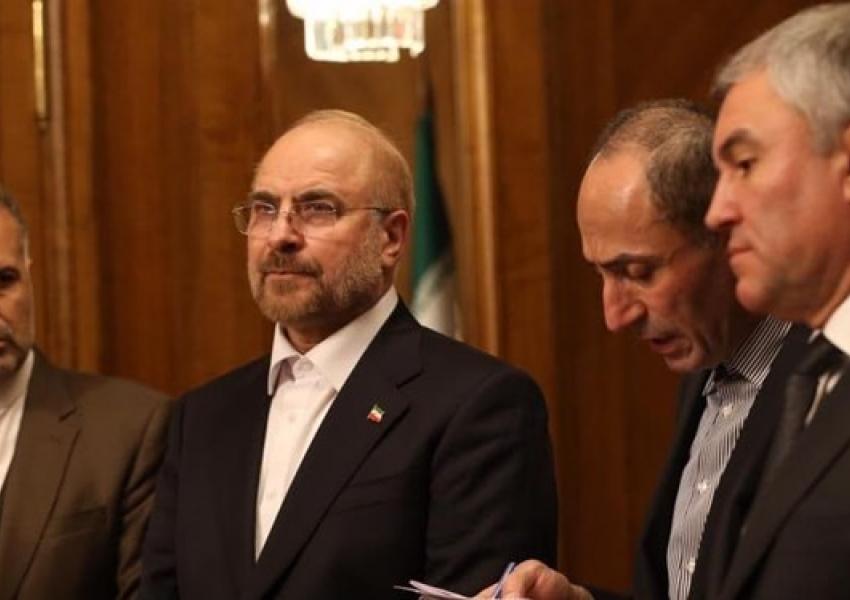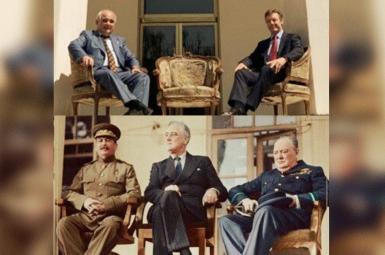
Despite No Putin Meeting, Iran's Speaker In Moscow Proclaims ‘New Era’ In Bilateral Ties
A message sent by Iran’s Supreme Leader Ali Khamenei to Russian President Vladimir Putin underscored the importance of strong strategic relations between the two countries, Mohammad Bagher Ghalibaf (Qalibaf), Iran’s parliament speaker, said in Moscow on Monday [February 8].
Ghalibaf, who arrived on Sunday, met with the Chairman of Russian’s State Duma Viacheslav Volodin, Monday and passed on Khamenei’s letter amid controversy about earlier plans that he would meet with Putin. It was announced on Saturday that Ghalibaf would hand deliver to the Russian president a message from Khamenei, but it was announced later in the day by Ghalibaf associates that the meeting would not go ahead as the speaker had rejected Covid-19 protocols set by the Russians.
Given Ghalibaf’s probable intention to stand in Iran’s presidential election in June, any likely domestic boost of the trip appeared stymied. Some Iranian journalists and political activists speculated that Putin had snubbed Khamenei by refusing to meet his messenger – although the snub may have been to Ghalibaf.
The Iranian speaker tweeted after meeting Volodin that Khamenei’s letter “opens a new era” in Russian-Iranian relations and was a roadmap for Iran in “looking East” – a line often taken by principlists criticizing President Hassan Rouhani for outreach to Europe or the US.
Ghalibaf told his Russian counterpart and reporters that the Moscow visit was his first foreign trip as speaker, a post he took up in May last year. While some Iranian officials have curtailed overseas visits due to United States sanctions – the Trump administration sanctioned foreign minister Mohammad Javad Zarif in 2019 – Ghalibaf is not personally sanctioned by US.
Russia in December supported a statement agreed by remaining signatories of the 2015 Iran nuclear deal – Russia, Iran, Germany, France, the UK and China – regretting the Trump administration leaving the agreement in 2018 and supporting the return of both Washington and Tehran to their commitments under the deal. While Rouhani has expressed support for reviving the agreement, Ghalibaf has backed efforts in the Iranian parliament that the Rouhani government says are designed to complicate the process.
Ghalibaf told reporters in Moscow, according to the Fars news agency, that he had discussed many regional and bilateral economic issues and that both parliamentary leaders had condemned US sanctions imposed on their countries. Volodin had said that Russia and Iran had “a common struggle against sanctions and these trade wars and double standards that have been implemented not only against us but also against China and North Korea,” Fars reported. For Ghalibaf the most important part of his trip was Khamenei’s message, Fars added.
Volodin also suggested that the US and other countries were pushing their own Covid vaccines at the expense of others, Fars said. Russia has applied for European Union approval for its Sputnik V vaccine, but so far only Hungary within the EU has agreed to use it.








